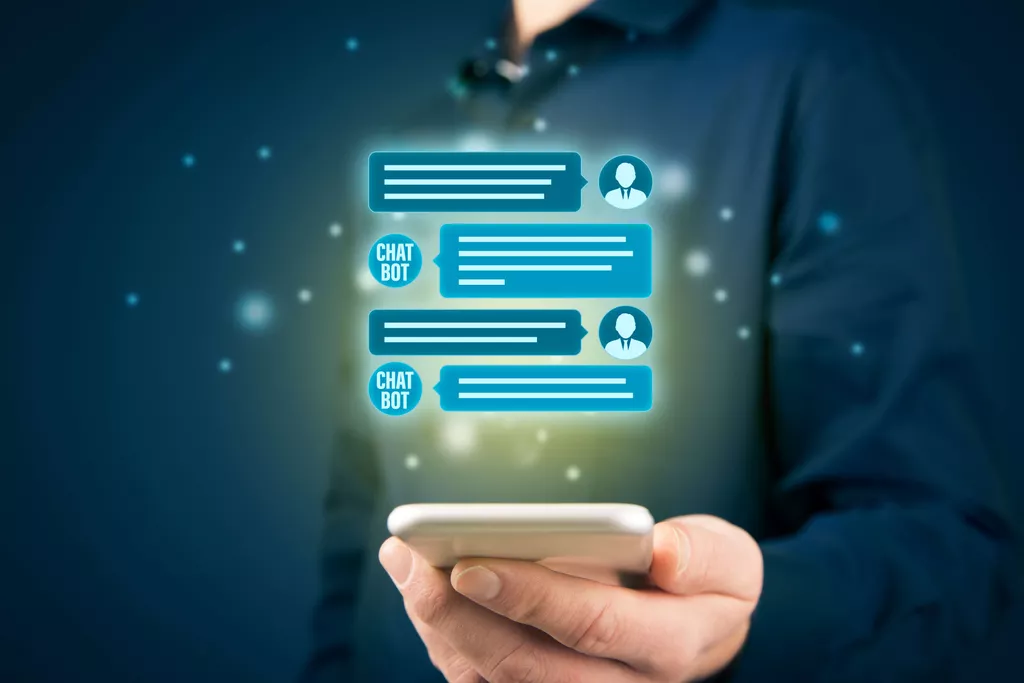
Chatbots may even collect and process co-payments to further streamline the process. This healthcare chatbot is a messaging service that assists healthcare professionals. The chatbots help the users to know the right drug and the use of a drug, especially for breastfeeding women. It helps the doctors to keep track of the correct medicines which they are giving to their patients. The bot also helps the doctors to keep track of the ingredients of the medicines.
- Users choose quick replies to ask for a location, address, email, or simply to end the conversation.
- Thankfully, chatbots help you show product recommendations before and during an ongoing chat.
- But before the implementation of chatbots for the healthcare industry, it is necessary first to define your expectations.
- From the patient’s perspective, many chatbots have been designed for symptom screening and self-diagnosis.
- But it is yet to accomplish tasks that needs to make chatbots as efficient as possible.
- The chatbot can provide the patient with accurate information quickly and efficiently, reducing the need for patients to wait to speak to a healthcare professional.
This is designed to provide an interactive learning medium which results in fast progress of child. A chatbot is artificial intelligence (AI) software that can simulate a conversation (or a chat) with a user in natural language through messaging applications, websites, mobile apps or through the telephone. A chatbot is often described as one of the most advanced and promising expressions of interaction between humans and machines. Machine Learning and artificial intelligence are fast growing technologies and are used in any area to make human activities easy and fast. They can be connected to various APIs which will for example enable them to deal with a wider range of children requests. Multifunctional chatbot assistance built using this technology will help children in day to day activity.
Top 15 Use Cases for Chatbots in Healthcare
Similarly, conversational style for a healthcare bot for people with mental health problems such as depression or anxiety must maintain sensitivity, respect, and appropriate vocabulary. Before chatbots, we had text messages that provided a convenient interface for communicating with friends, loved ones, and business partners. In fact, the survey findings reveal that more than 82 percent of people keep their messaging notifications on. And an average person has at least three messaging apps on their smartphones.
- Now that we’ve identified different types of chatbots, let’s look at how they can be implemented for your business.
- One of the most often performed tasks in the healthcare sector is scheduling appointments.
- 30% of patients left an appointment because of long wait times, and 20% of patients permanently changed providers for not being serviced fast enough.
- Beyond cancer care, there is an increasing number of creative ways in which chatbots could be applicable to health care.
- Oftentimes, your website visitors are interested in purchasing your products or services, but need some assistance to make that final step.
- You don’t have to employ people from different parts of the world or pay overtime for your agents to work nights anymore.
They can handle requests without the need for human intervention, which frees up the busy customer service agents who can work on more complex issues. You can use them to send a push notification to customers to purchase items they’ve left in their shopping cart or recommend similar products. Businesses have come to realize that websites are no longer a one-way channel of communication. Consumers no longer visit a store to see products or order services; they visit websites to take action. People want to make educated purchases, get updates on their orders, and get easy, fast solutions to their issues.
Advanced Support Automation
As medical chatbots interact with patients regularly on websites or applications it can pick up a significant amount of user preferences. Such patient preferences can help the chatbot and in turn, the hospital staff personalize patient interactions. Through patient preferences, the hospital staff can engage their patients with empathy and build a rapport that will help in the long run. AI chatbots in the healthcare sector can be leveraged to collect, store, and maintain patient data. This can be recalled whenever necessary to help healthcare practitioners keep track of patient health, and understand a patient’s medical history, prescriptions, tests ordered, and so much more. Another advantage is that the chatbot has already collected all required data and symptoms before the patient’s visit.
What is Generative AI? Everything You Need to Know – TechTarget
What is Generative AI? Everything You Need to Know.
Posted: Fri, 24 Feb 2023 02:09:34 GMT [source]
New employees have to deal with and process huge amounts of information in a very short period of time. Having an all-knowing and always-available virtual assistant in their corner is bound to make their initiation much easier. Last but not least is the use of chatbots to streamline internal communication within a company.
Design & launch your conversational experience within minutes!
The chatbot guides and educates patients about genetic testing and helps to get reliable information faster and more conveniently. Also, the chatbot sends detailed explanations of test results and a patient can book a meeting with a genetic counselor. Chatbots metadialog.com and voice assistants can help doctors to create documents or reports during patient’s examination. In daily medical practice, voice assistants can help to fill out papers like drug prescriptions and refillings, summaries of the visit, or referral letters.
- Using an interactive bot and the information it delivers, the patient can select what dosage of therapies and medications is necessary.
- This process is inherently uncertain, and the diagnosis may evolve over time as new findings present themselves.
- From tracking down lab reports to keeping track of upcoming appointments, Watson Assistant AI medical chatbots can help.
- Such numbers give a quick glimpse of what a chatbot is capable of doing for a business.
- Here are some of the best chatbot use cases to simplify your legal processes.
- They can also be programmed to answer specific questions about a certain condition, such as what to do during a medical crisis or what to expect during a medical procedure.
It could also answer questions about covid-19, such as how PCR tests work, or on the vaccine. A chatbot can be used for providing accurate and timely information on things like health insurance, symptoms of illnesses, medical procedures, costs of medical procedures, and much more. In addition, bots can give information on medication, standards, dosages, and so on. On the other hand, chatbots can answer thousands of questions at the same time.
Answering questions
Babylon Health offers AI-driven consultations with a virtual doctor, a chatbot, and a real doctor. For instance, a Level 1 maturity chatbot only provides pre-built responses to clearly-stated questions without the capacity to follow through with any deviations. So, one way to provide a better experience and relieve the impact of budget constraints is – you guessed it – chatbots.

For example, many patients now require extended at-home support and monitoring, whereas health care workers deal with an increased workload. Although clinicians’ knowledge base in the use of scientific evidence to guide decision-making has expanded, there are still many other facets to the quality of care that has yet to catch up. Key areas of focus are safety, effectiveness, timeliness, efficiency, equitability, and patient-centered care [20]. These categories are not exclusive, as chatbots may possess multiple characteristics, making the process more variable. Textbox 1 describes some examples of the recommended apps for each type of chatbot but are not limited to the ones specified.
Ready to Build Your Chatbot?
The first step is to set up the virtual environment for your chatbot; and for this, you need to install a python module. Once this has been done, you can proceed with creating the structure for the chatbot. All these platforms, except for Slack, provide a Quick Reply as a suggested action that disappears once clicked. Users choose quick replies to ask for a location, address, email, or simply to end the conversation. A friendly and funny chatbot may work best for a chatbot for new mothers seeking information about their newborns. Still, it may not work for a doctor seeking information about drug dosages or adverse effects.
On the platform, there will be three modules, chatbot, video chat, and appointment booking. The chatbot can predict the disease and give healthcare advice according to details provided by the user. In the video chat module, the user will be able to communicate with a doctor through video call or only through chat. In the appointment booking module, users can book an appointment with different doctors and hospitals for checkups. With the help of the platform, an individual can save a lot of time and money for simple health-related problems.
Obtain datasets and train the model
It can also assist in selecting the right dose of medication for individual patients based on their medical history and physiological parameters. Cloud computing, in particular, facilitates integrating effective and safe AI systems into mainstream healthcare delivery. Compared to healthcare organizations’ traditional ‘on-premises’ infrastructure, cloud computing provides the processing capability to analyze large volumes of data at faster speeds and lower prices. Indeed, we see many technology companies trying to collaborate with healthcare organizations to foster AI-driven medical innovation enabled by cloud computing and technology-related change. Lack of price transparency is a major challenge in the healthcare system, making it difficult for patients to anticipate and compare the costs of medical services.
Where Americans Think AI Will Help The Most – Statista
Where Americans Think AI Will Help The Most.
Posted: Thu, 16 Mar 2023 07:00:00 GMT [source]
If it’s a more complex question, the chatbot can also collect relevant and categorical information before directing them to the best agent for the job. Customers today expect a more rapid and easy resolution of their issues than ever before. A recent study by HubSpot found that 90% of customers expect an immediate response when dealing with customer service. This is why many customers prefer live chat over channels like email, phone, and social media. Today, chatbots are used in a wide variety of industries and for diverse purposes. Many businesses use chatbots and AI in customer service for routing contacts or gathering information.
Navigating the Digital Frontier: The Pros and Cons of Symptom Checker Chatbots
Unlike disease surveillance chatbots where the user initiates the interaction, these chatbots initiate contact with the users and ask questions about symptoms. We searched PubMed/MEDLINE, Web of Knowledge, and Google Scholar in October 2020 and performed a follow-up search in July 2021. Chatbots, their use cases, and chatbot design characteristics were extracted from the articles and information from other sources and by accessing those chatbots that were publicly accessible.

The 61 chatbots reflect a global sample of chatbots deployed in more than 30 countries. These include 33 chatbots that conversed in 45 languages other than (or in addition to) English. Tables 1 and 2 in Appendix 1 provide background information on each chatbot, its use cases, and design features. References to case numbers below refer to the corresponding chatbots in Appendix 1. As a retail bank, you and your team are likely used to fielding simple questions. But at the same time, many of your customers are coming to you in times of great vulnerability.
What are the common uses of chatbots?
- Chatbots answer questions and inquiries.
- Book tickets to events/shows with chatbots.
- Chatbots to build remarkable customer experience.
- Chatbots can confirm orders and track shipping.
- Chatbots help you collect customer feedback efficiently.
- Chatbots assign customer requests to support teams.
Real time chat is now the primary way businesses and customers want to connect. At REVE Chat, we have extended the simplicity of a conversation to feedback. Healthcare bots help in automating all the repetitive, and lower-level tasks of the medical representatives. While bots handle simple tasks seamlessly, healthcare professionals can focus more on complex tasks effectively. There’s no denying that the wide adoption of chatbot technology in healthcare will produce a long-lasting positive effect. Whether developing a chatbot for a hospital or a medical insurance payer, there are multiple benefits to reap.
Not only can these chatbots manage appointments, send out reminders, and offer around-the-clock support, but they pay close attention to the safety, security, and privacy of their users. Chatbot can be understood as a software that can chat with people using artificial intelligence. This software can also perform tasks such as quickly responding to users, informing them, helping to purchase products and providing the customers better services. A chatbot is a computer software program that can conduct a conversation by an auditory or textual methods. Chatbot has become more popular in business group in the present as it can reduce customers service costs and handles multiple users at a time. But it is yet to accomplish tasks that needs to make chatbots as efficient as possible.
What are the limitations of healthcare chatbots?
- No Real Human Interaction.
- Limited Information.
- Security Concerns.
- Inaccurate Data.
- Reliance on Big Data and AI.
- Chatbot Overload.
- Lack of Trust.
- Misleading Medical Advice.
